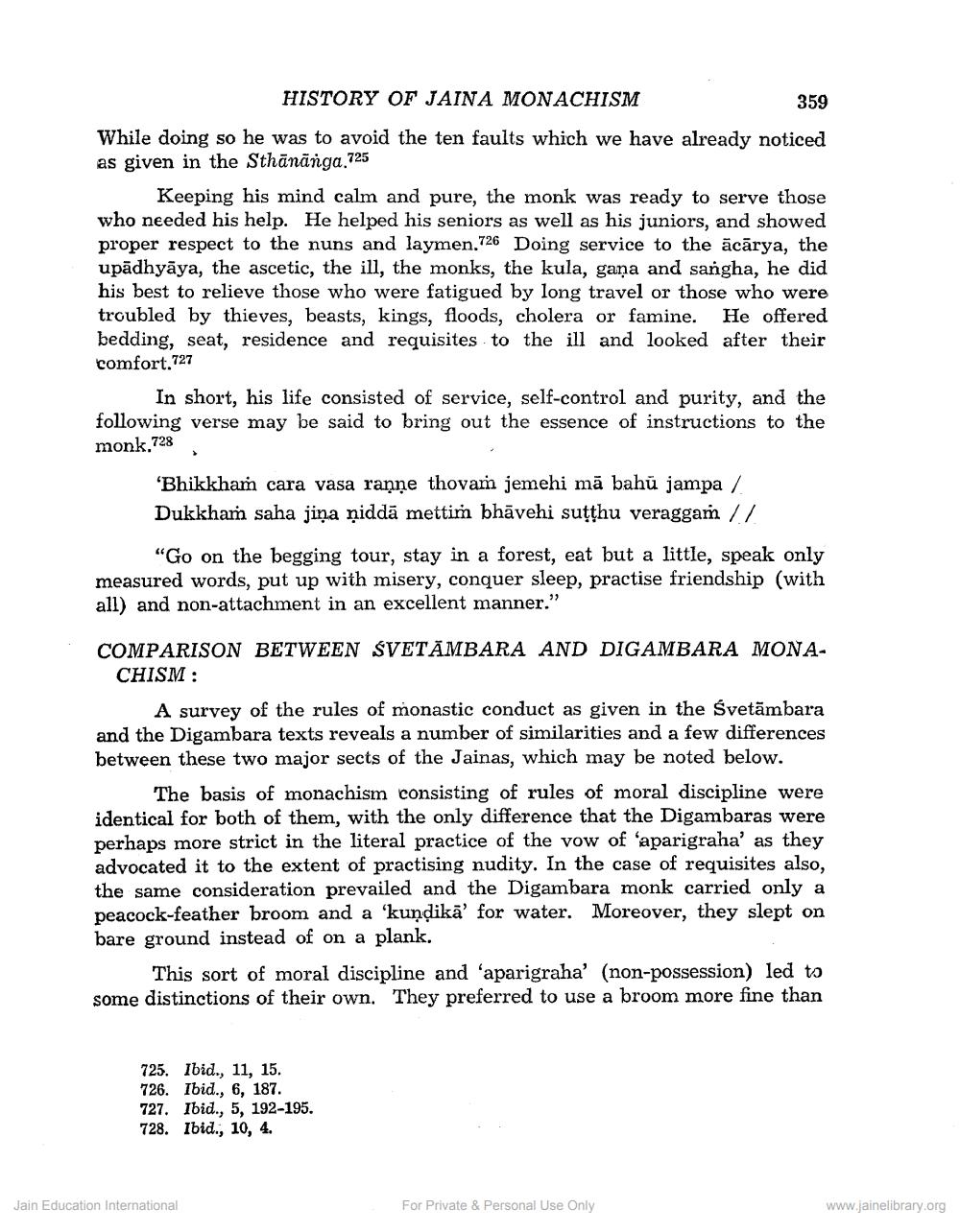________________
HISTORY OF JAINA MONACHISM
359 While doing so he was to avoid the ten faults which we have already noticed as given in the Sthānānga.725
Keeping his mind calm and pure, the monk was ready to serve those who needed his help. He helped his seniors as well as his juniors, and showed proper respect to the nuns and laymen.726 Doing service to the ācārya, the upādhyāya, the ascetic, the ill, the monks, the kula, gana and sangha, he did his best to relieve those who were fatigued by long travel or those who were troubled by thieves, beasts, kings, floods, cholera or famine. He offered bedding, seat, residence and requisites to the ill and looked after their comfort.727
In short, his life consisted of service, self-control and purity, and the following verse may be said to bring out the essence of instructions to the monk.728
'Bhikkham cara vasa raŋŋe thovam jemehi mā bahu jampa / Dukkham saha jina şiddā mettim bhāvehi sutthu veraggam //
"Go on the begging tour, stay in a forest, eat but a little, speak only measured words, put up with misery, conquer sleep, practise friendship (with all) and non-attachment in an excellent manner."
COMPARISON BETWEEN SVETĀMBARA AND DIGAMBARA MONACHISM:
A survey of the rules of monastic conduct as given in the Svetāmbara and the Digambara texts reveals a number of similarities and a few differences between these two major sects of the Jainas, which may be noted below.
The basis of monachism consisting of rules of moral discipline were identical for both of them, with the only difference that the Digambaras were perhaps more strict in the literal practice of the vow of 'aparigraha' as they advocated it to the extent of practising nudity. In the case of requisites also, the same consideration prevailed and the Digambara monk carried only a peacock-feather broom and a 'kundikā' for water. Moreover, they slept on bare ground instead of on a plank.
This sort of moral discipline and 'aparigraha' (non-possession) led to some distinctions of their own. They preferred to use a broom more fine than
725. Ibid., 11, 15. 726. Ibid., 6, 187. 727. Ibid., 5, 192-195. 728. Ibid., 10, 4.
Jain Education International
For Private & Personal Use Only
www.jainelibrary.org




